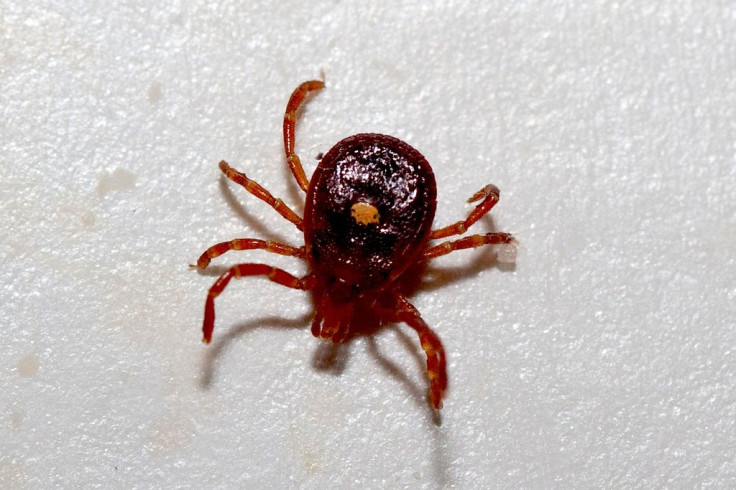Tick Bites Linked to Surge in Meat Allergies: Can a Tiny Bite Force You to Become Vegetarian?

Just one from a tiny tick may cause people to develop an allergy to red meat, according to new research.
Experts say that recent research suggests that the Lone Star tick may be the responsible for a sudden increase of meat allergies in people living in the southern regions of the U.S.
Researchers, presenting Friday American College of Allergy, Asthma and Immunology (ACAAI) annual meeting, in Anaheim, California, explain that when the tick, commonly found in central and southern U.S. regions, bites, it injects spit into its victims. Once the spit is injected, the body develops antibodies against a carbohydrate in the tick's spit called alpha-gal. Researchers said that because the alpha-gal carbohydrate is also present in red meats like beef, pork, lamb and cow's milk, a person who has been bitten by the Lone Star tick would develop an allergic reaction when they eat meat.
"People will eat beef and then anywhere from three to six hours later start having a reaction; anything from hives to full-blown anaphylactic shock," Dr. Scott Commins, assistant professor of medicine at the University of Virginia in Charlottesville, told ABC News. "Most people want to avoid having the reaction, so they try to stay away from the food that triggers it."
The red meat allergy, which was first documented in 2008, causes symptoms like hives, skin rashes, indigestion, vomiting, asthma and in extreme cases, anaphylaxis, which is potentially fatal, according to researchers.
Researchers found that rates of the allergy to alpha-gal are 32 percent higher in lone star tick population areas compared to other regions.
Researchers noted that there were higher than expected rates of north-central and west regions of the U.S., where the lone star tick is not found.
"These findings suggest that other species of ticks, or possibly human factors, may play a role in allergic reactions to alpha-gal," Dr. Stanley Fineman, the president of ACAAI, said in a statement.
"Patients with delayed allergic reactions after eating meats should see an allergist to determine if it is an alpha-gal allergy. The best treatment is strict avoidance of meat. An allergist may also prescribe epinephrine in the event of a life threatening emergency," Fineman added.
While scientists do not know the exact mechanism for how a bite from the lone star tick might cause meat allergy, Dr. Scott Commins, an assistant professor of medicine at the University of Virginia who has published research on alpha-gal allergy told CNN reporters earlier this year that there could be an organism in the tick's saliva that makes a person allergic to the alpha-gal sugar in mammalian meat.



























